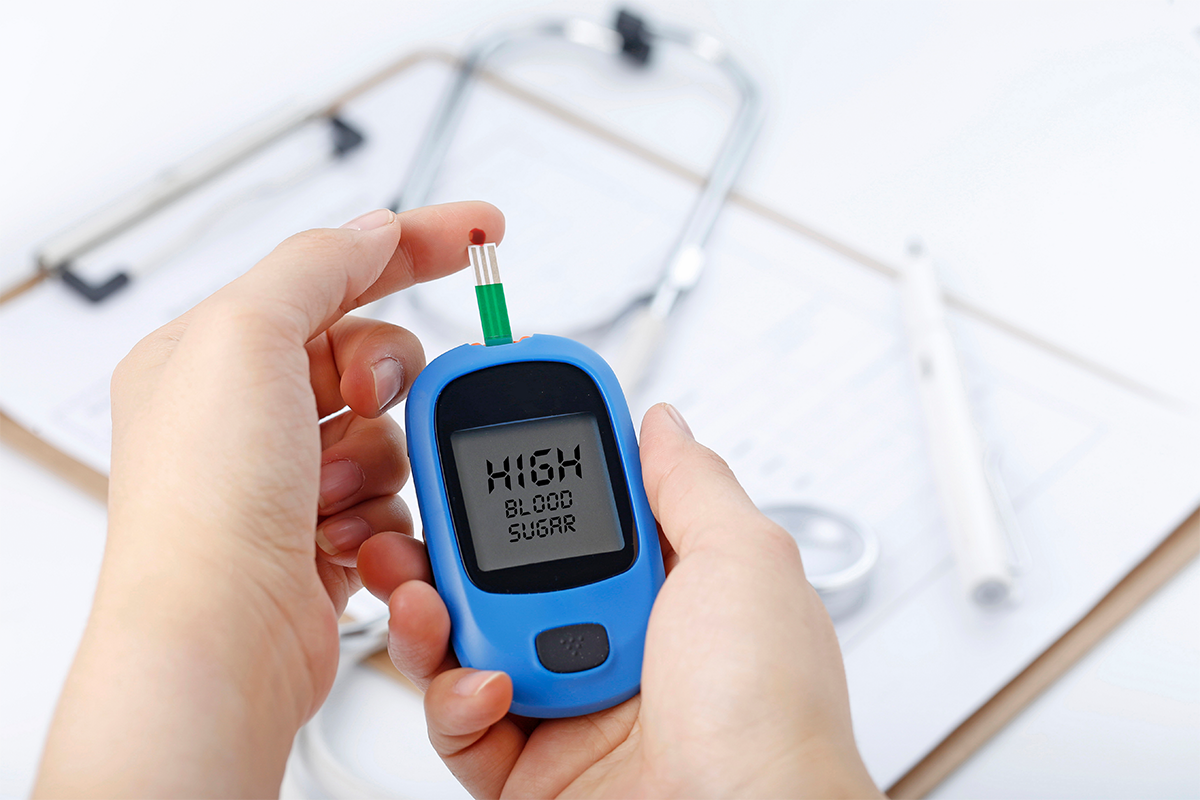 November 19, 2022
November 19, 2022
According to the International Diabetes Federation (IDF), in 2021, approximately 537 million adults (20-79 years) are living with diabetes worldwide.
Diabetes is a chronic (long-term) disease that can be taken care of in various ways if diagnosed early on. In 2021, almost 1 in 2 adults living with diabetes were undiagnosed, according to IDF. Thus, it is essential to know more about this disease to take the necessary steps to prevent it in time.
What is diabetes?
Diabetes occurs because of two reasons, either when your body is unable to produce enough insulin or when it is unable to use the insulin it produces effectively i.e., insulin resistance. Insulin is a hormone released by the pancreas and helps use the glucose from your energy food. When it has not produced enough or your body does not use it enough, it leads to glucose being built up in your blood, which leads to many health problems, thus, leading to diabetes.
There are majorly two types of diabetes:
Type 1 Diabetes- In this type, your body does not produce insulin as your immune system attacks the cells in your pancreas. Because of this, people with this type of diabetes need to take insulin daily. It can occur at any age but is more commonly diagnosed in children and adolescents.
Type 2 Diabetes- In this type, your body may make insulin but cannot utilize it, leading to insulin resistance. It can occur at any age but is more common among adults. It is also the most common type of diabetes.
Gestational diabetes- Some pregnant women develop diabetes during/after 5 months of pregnancy, which normalizes within 6 weeks post-delivery.
What are the signs I need to look out for diabetes?
The signs and symptoms of type 1 and type 2 diabetes may initially appear subtle but become more severe with time. They include:
Who are at risk of developing diabetes?
Type 1 diabetes:
Type 2 diabetes:
The problems that people with diabetes face can range from just foot problems, and dental disease, to stroke, nerve damage, heart disease, blindness, etc. In a 2021 review, it was found that people who live in cities or metropolitan areas of India are more likely to develop diabetes because of the kind of unhealthy lifestyle they lead.
Which tests are performed to check for diabetes?
The tests for diabetes usually involve collecting blood samples, but how they are collected is what sets them apart:
How to treat diabetes?
The treatment options for type 1 diabetes involve insulin injections or an insulin pump, as well as regular blood sugar checks and carbohydrate counting.
The treatment options for type 2 diabetes involve making changes to your lifestyle, oral diabetes drugs or insulin, and regular blood sugar checks.
Can you prevent diabetes? If yes, how?
Currently, there are no ways to prevent type 1 diabetes, but a lot of research is being done to identify ways to prevent or slow down the disease.
But there are certain lifestyle changes that you can surely make to prevent type 2 diabetes are:
Eating Healthy- Cutting down high fat and calorie rich food and eating more proteins, fruits, vegetables and whole grains can help in losing weight as obesity is one of the causes of type 2 diabetes. Cutting down on processed food and sweets also helps.
Being Physically Active- Being physically active not only boosts your immune system and helps you lose weight but also helps your body use the excess sugar or glucose in your body for energy, thus, lowering your blood sugar level. And as moving around and being active helps absorb the glucose in your body, it makes your body more insulin sensitive as it requires less insulin.
The total number of people living with diabetes is projected to rise to643 million by 2030 and 783 million by 2045, according to IDF. Thus, it is the need of the hour that we monitor our health very carefully and take the necessary steps to live a healthy and full life.
If you experience any symptoms related to Diabetes, don't delay consulting your doctor. Receiving the proper medical treatment and care is the only way to steer clear of any related medical complications.
To book an appointment, contact us at +91-9540 114 114.
2026 © SSB Heart and Multispecialty Hospital.